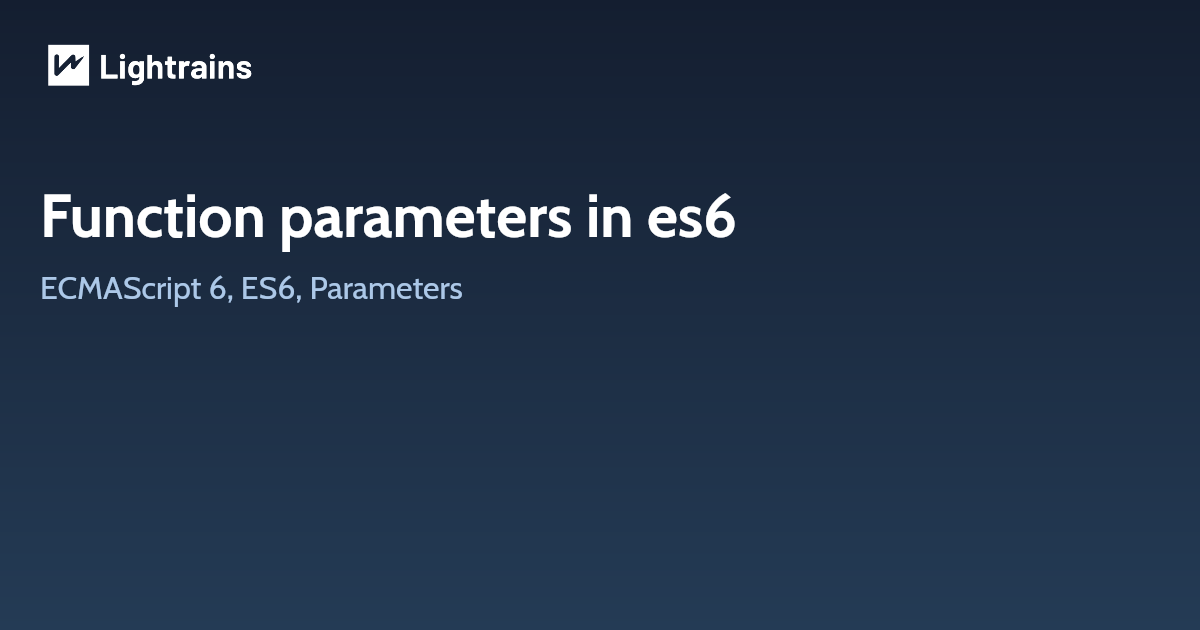
There are 2 types of function parameters available in es6,
- Default Parameters
- Rest Parameters
Default Parameter
Default parameter are a way to pass a value to the function parameter when there is no value is being passed by the callee during invocation.
We specify this value when defining a function,
function printName(name = 'there') {
return `Hello, ${name}`
}
We can even use the default parameter of one parameter as part of an expression for another paramter. For eg:
function printName(name = 'there', fullname = name + ' lastName') {
return `Hello, ${name} - ${fullname} `
}
Rest Parameters
The rest parameter syntax allows us to represent an indefinite number of arguments as an array.
This is achieved by using a new operator called Spread Operator which is represented by ... 3dots
Spread Operator It is used when we want to pass an array to a function as individual arguments of that function. For eg:
function sum(x, y, z) {
return x + y + z
}
let values = [1, 2, 3]
// notice the usage of ...
sum(...values)
Another Example
function f(x, ...y) {
// y is an Array
return x * y.length
}
f(3, 'hello', true) == 6
If the last named argument of a function is prefixed with ..., it becomes an array whose elements from 0 (inclusive) to theArgs.length (exclusive) are supplied by the actual arguments passed to the function.
In the above example, theArgs would collect the third argument of the function (because the first one is mapped to a, and the second to b) and all the consecutive argument
Sources
- https://developer.mozilla.org/en-US/docs/Web/JavaScript/Reference/Functions/rest_parameters
- https://lightrains.com/blogs/es6#default—rest—spread
This article originally appeared on lightrains.com
Leave a comment
To make a comment, please send an e-mail using the button below. Your e-mail address won't be shared and will be deleted from our records after the comment is published. If you don't want your real name to be credited alongside your comment, please specify the name you would like to use. If you would like your name to link to a specific URL, please share that as well. Thank you.
Comment via email







